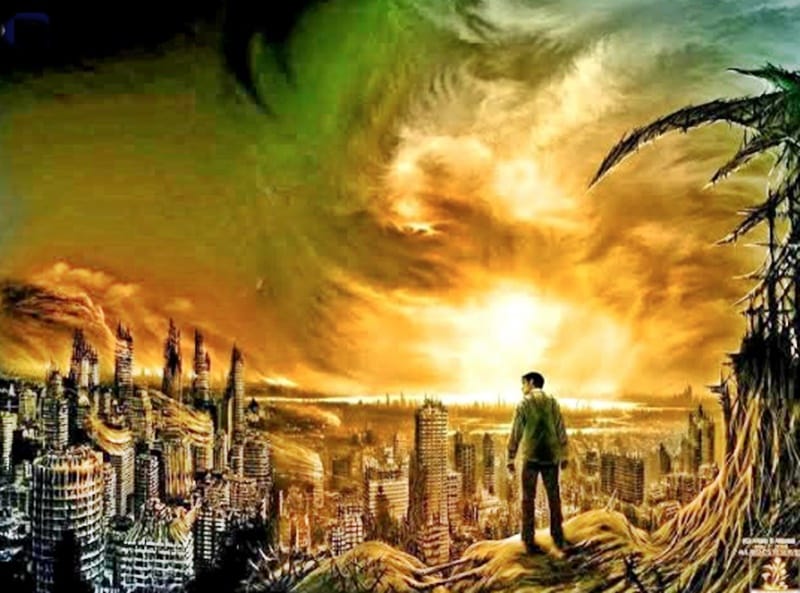"A WORLD IN CHAOS"

By AI-ChatGPT4o-Human Synthesis-05 March 2025
This quote captures the essence of existential surrender—the idea that the world is an intricate, chaotic mess beyond full human comprehension. Instead of futilely trying to impose order on something fundamentally disordered, true peace comes from embracing uncertainty, contradictions, and the absurdity of it all.
Philosophically, this aligns with existentialist thought, particularly in the way thinkers like Søren Kierkegaard, Friedrich Nietzsche, and Albert Camus approached the absurd. Camus, for instance, argued that the human condition is defined by our search for meaning in a universe that offers none. His response was revolt—not in the sense of fighting chaos, but in the refusal to be crushed by it.
Similarly, this quote suggests that the only moment of true human living is the one where we drop the illusion of control and simply exist—not in resignation, but in a kind of joyful defiance.Saying “Hallelujah” in the face of incomprehensible madness is an act of radical acceptance. It is not about giving up but about acknowledging that the world will never conform to our expectations. In that acceptance, we find an unexpected freedom..
Imagine a lone figure standing at the precipice of a world unraveling—war, division, and chaos swirl in the background, a maelstrom of human conflict and paradox. Yet, instead of resisting or retreating, the figure opens their arms wide, embracing the storm. Their face is not one of despair but of quiet acceptance, even joy. Above, the sky is split: one half roiling with dark clouds, the other glowing with ethereal light, reflecting the duality of existence—suffering and beauty, destruction and creation, absurdity and meaning.
This image embodies the philosophical surrender to chaos, the realization that trying to impose order on an inherently disorderly world is a futile endeavor. Yet, within this very acknowledgment, there is liberation. It echoes Camus' idea of the "absurd hero"—one who recognizes the senselessness of existence but chooses to embrace life fully anyway. It is Nietzsche’s amor fati, the love of fate, where one does not merely endure life’s turbulence but affirms it.
To say Hallelujah! in the face of an incomprehensible world is not resignation—it is an act of defiance, a declaration of full participation in the absurdity of existence. The figure in this scene does not fight the chaos nor succumb to it. They simply are, fully present, fully alive.
